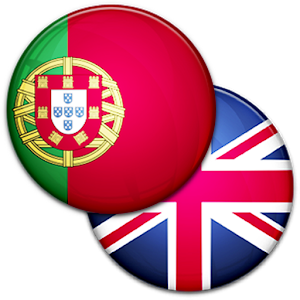Portuguese Word order
If you listen to a native Portuguese speaker talking, you may notice that sometimes the word order in Portuguese is different than the word order in English. But generally speaking, the structure of a sentence in Portuguese is not much different than the one in English
The Portuguese word order is Subject > Verb > Object .
Tu gostas de sopa.
You like soup.
You can use the same Portuguese word order in the present, past and future tenses.
2. If a sentence is negative with the word "não" in it.
If the sentence you want to build is a negative sentence, you need to place the negative word before the verb in order to get a correct Portuguese word order. And you don’t need to use an auxiliary verb in negative form.
Subject > Não > Verb > Object
Eu não gosto de sopa.
I don’t like soup.
3. If a sentence is an indirect question with a question mark at the end
The Portuguese word order in indirect question is exactly the same as when you make a statement. All you have to do is to raise the intonation at the end to make it sound as a question.
Subject > Verb > Object > ?
Tu gostas de sopa?
Do you like soup?
Subject > Verb > Object > ?
Tu gostas de sopa?
Do you like soup?
In English you need to use a verb at the beginning when you ask a question, in Portuguese you don't.
4. If a sentence is a direct question with a question word at the beginning and a question mark at the end
All you need is a question word at the beginning of your sentence and then a statement.
Question Word > (Subject.) > Verb > Object ?
QUESTION WORDS
what
|
o que*
|
which
|
qual (quais)
|
who
|
quem
|
how much
|
quanto (-a) (-s)
|
how
|
como
|
how many
|
quanto (-a) (-s)
|
when
|
quando
|
whom
|
a quem
|
where
|
onde
|
whose
|
de quem
|
why
|
porquê
|
The word que always receives the circumflex when it is placed at the end of a sentence.
Você está procurando o quê? Are You looking for what?
O que comeste ao almoço?- What do you eat at lunch?
O que fizeste ontem?- What did you do yesterday?
Que horas são agora? What time is it now?
Que horas são agora? What time is it now?
Quem foi o primeiro presidente dos Estados Unidos da América? Who was the first president of the United States of America?
Como está o tempo hoje? How is the weather today?
Como é sua família? What is your family like?
Quando comprou o seu primeiro carro? When you bought your first car?
Quando foi a 2º Guerra Mundial? When was the 2nd World War?
Onde vai aos domingos? Wherewill on Sundays?
Onde gostaria de estar agora? Where would you be now?
Por que está estudando português? Why are you studying Portuguese?
Qual o pais que mais gostou de visitar? What parents like best to visit?
Qual a tua opinião sobre o Facebook? What do you think about Facebook?
Quais as praias que conhece? Which beaches you know?
Quantos livros leu no ano passado? How many books do you read last year?
Note: In European Portuguese, normally emphasize these question words of the Portuguese vocabulary with "é que" (Quem é que gosta de sopa? - Who likes soupt?).
5. If a sentence is descriptive with an adjective.
In here there is a big change
The adjective (the descriptive word) needs to be placed after the noun.
Subject > Adjective
Um carro bonito
A beautiful car
The different word order, in some case, can have a different meaning:
Um homem rico- A rich man
Um rico homem- A good man (with a good personality)
Also, when it comes to using adjectives (or describing words) in a sentence, you may use more than one.
O novo carro ficou mais caro
The new car ended up more expensive
O novo carro ficou mais caro
The new car ended up more expensive
Remember Adjectives follow nouns, and they have to agree in number and gender with these nouns.
adapted: Learn Portuguese with Rafa
adapted: Learn Portuguese with Rafa






0 comentários